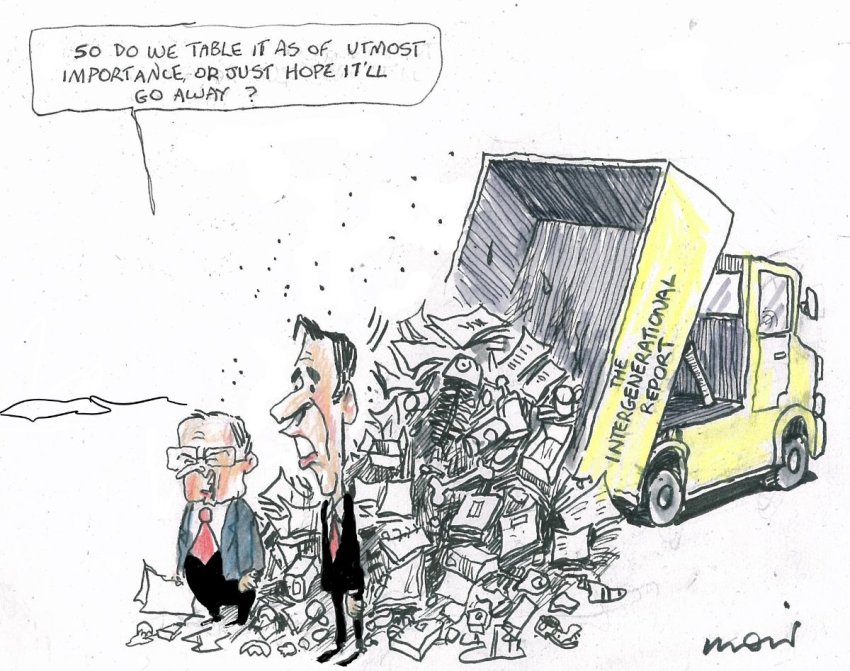
Labor’s 2024 budget, that supposedly addresses the cost-of-living crisis, leaves the poorest more than $220 a week under the poverty line. But it gives a $4529 tax cut to those on more than $190,000 a year and leaves billions in big business tax concessions and subsidies untouched, with promises of more in the years to come.
The biggest winners are the gas companies, arms manufacturers and developers and landlords, whose greed has made housing unaffordable for younger generations.
Treasure Jim Chalmers said in his budget speech that the amended Stage 3 tax cuts, drawn up by the Coalition government but supported then amended by Labor, “are the biggest part of the cost of living relief in this Budget”.
But those tax cuts give the biggest cuts to people who are not feeling the cost-of-living pressure, a token cut to most taxpayers (much of which will soon be lost through bracket creep) and nothing to the more than 3.3 million people living in poverty, a third of whom are children.
As the Australian Council of Social Service (ACOSS) noted, this is “a budget that has a hole in its heart”.
“At a time when unemployment is being deliberately increased to curb inflation, the government is deliberately and cruelly denying people receiving unemployment payments decent income support.
“This budget will deliver eye-watering tax cuts to the wealthiest people in the country and, at the same time, it cruelly denies the increase in income support that over one million people struggling to survive on JobSeeker and Youth Allowance desperately need,” ACOSS said.
“The $300 energy rebate will be the only cash support the majority of people on JobSeeker and Youth Allowance will receive. Extending it to everyone — regardless of income — is extraordinarily wasteful. It does not target support to people most in need.”
Even the government’s own Economic Inclusion Advisory Committee recommended JobSeeker be raised from 70% to 90% of the age pension (itself barely above the poverty line). But Labor chose to ignore this.
“The government has chosen to keep those on JobSeeker in poverty — now almost $225 a week below the poverty line,” reported The Australia Institute’s Greg Jericho in The Guardian.
The pitiful 10% rise to Commonwealth Rent Assistance will not be much relief to renters.
National median rents have risen by $164 a week since 2020, and by more in Gadigal/Sydney and Naarm/Melbourne.
As the Greens pointed out: “A renter only gets an extra dollar a day in rent assistance, while this budget gives the country’s property investors $1290 every second — every cent denying renters the chance to buy their first home.”
This represents $175.4 billion over the next three years.
Even without touching the billions in big business and billionaire hand-outs, Labor could have spent some of the $9.3 billion in unexpected surplus revenue for this year — largely due to high commodity prices for iron and coal — to meet urgent social and environmental needs.
But it does not.
The budget does not offer most workers with a job much real relief either. The tax cut they will receive is nominal: the $300 household energy bill discount (over the next year) comes as energy companies are raising electricity and gas prices, and wages will still lag behind cost-of-living expenses.
The budget predicts that real wages will rise by 3% over the next three years. But, as Jericho points out in The Guardian, even if these predictions are accurate, by 2028, the average value of wages in real terms will still be 2% lower than before the COVID-19 pandemic.
You would expect the trade union movement to make a bit of noise about this. But the Australian Council of Trade Union’s post-budget statement simply applauds Labor, baldly lying to its base that this budget is “good for working people”.
The budget’s “Future Made In Australia” headline displays no vision for a just, peaceful, ecologically sustainable future, because it is based on the discredited idea that concessions to the billionaire class can make things better.
Reality screams that this approach has failed.
Over the next three years, Labor proposes to spend almost $50 billion in coal, oil and gas subsidies, and put a $12 billion down payment on the $342 billion AUKUS nuclear-powered submarine deal.
Over the next decade, Labor projects nearly $1 trillion in military spending.